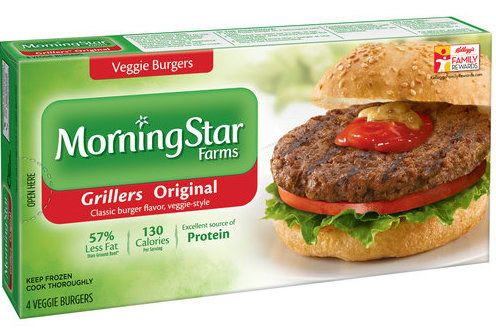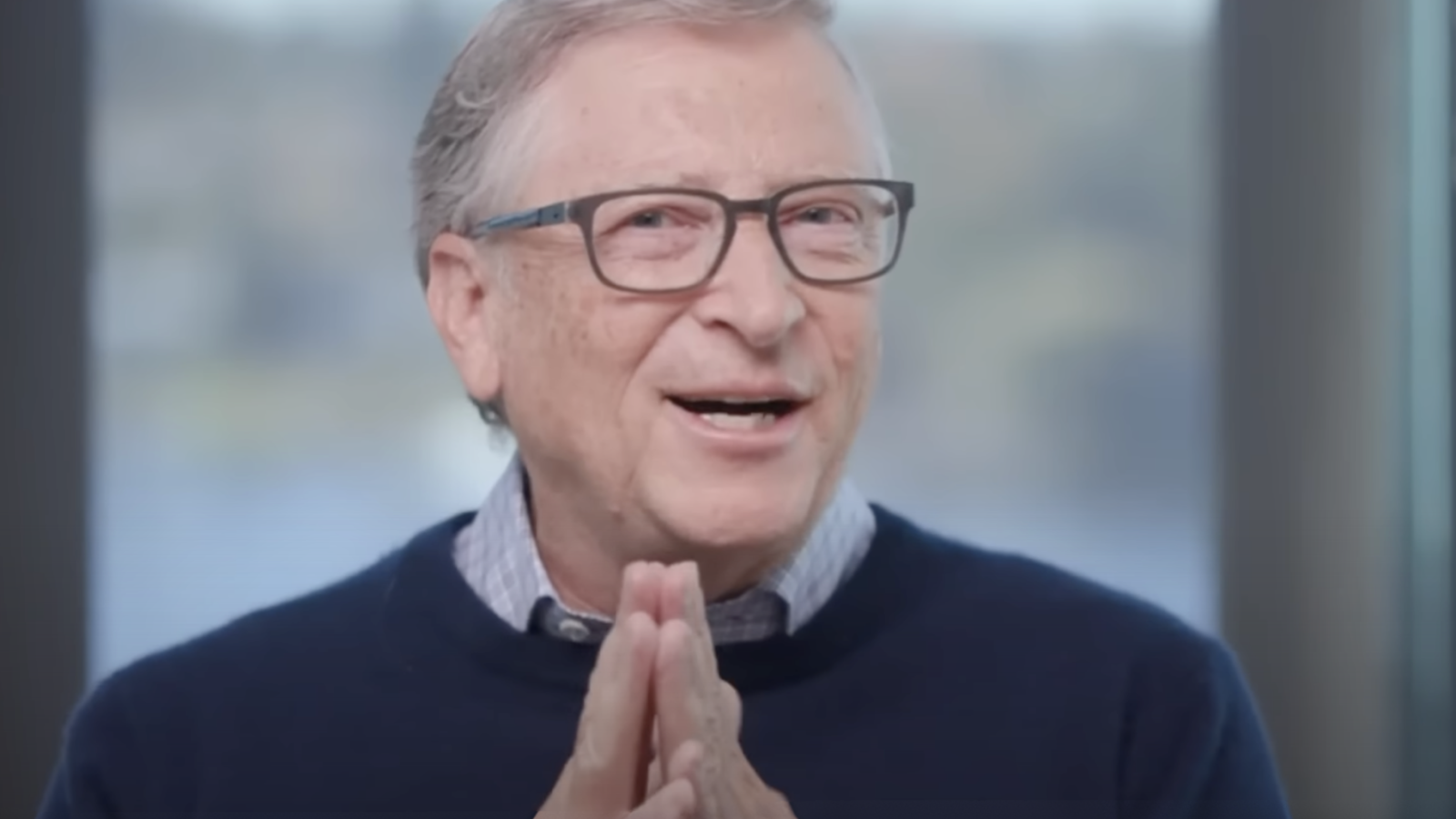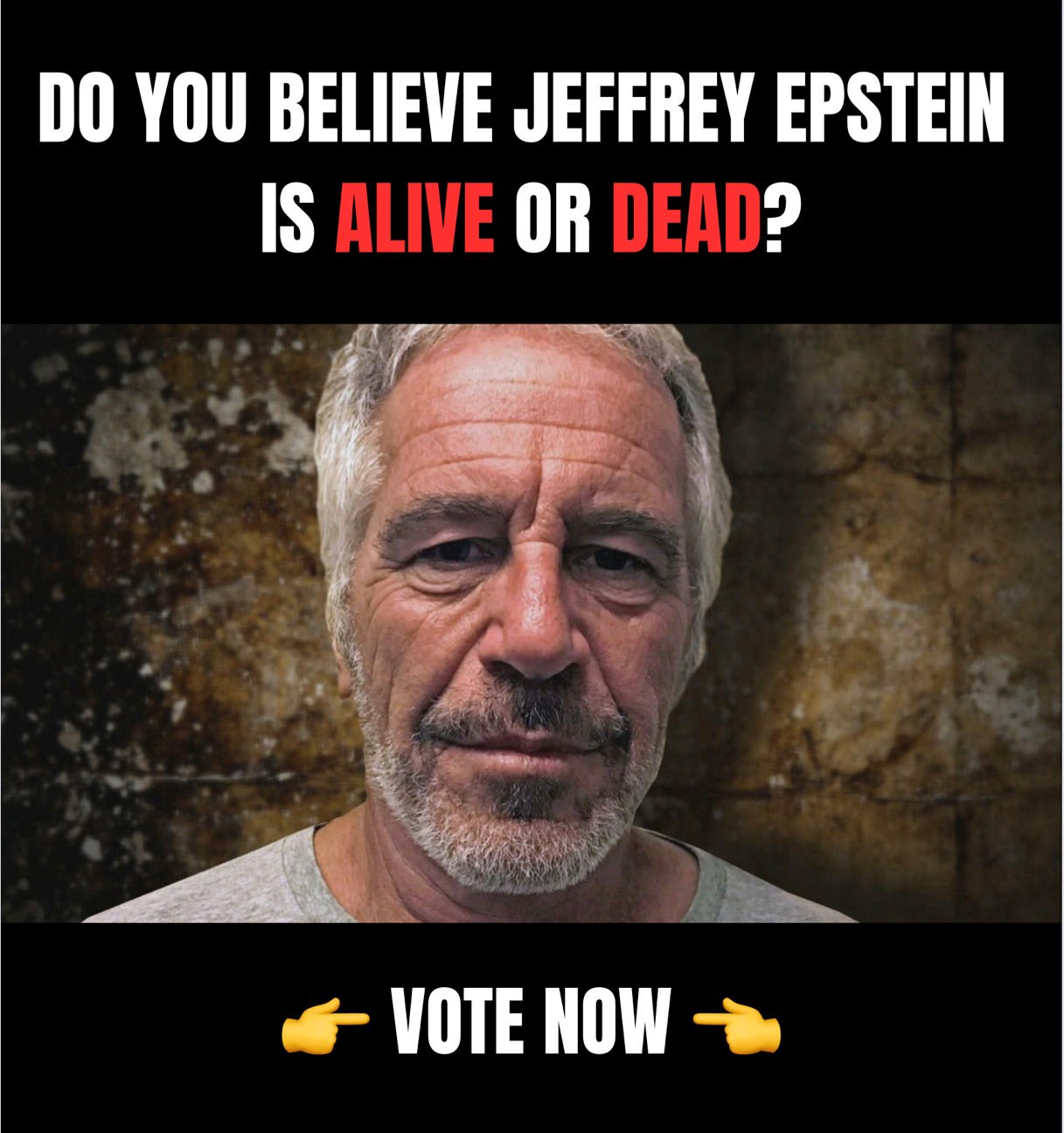Everyone’s favorite Depopulation Expert that dresses like Mister Rogers is back!
And this time, he’s got more creations he’s cooked in his lab for all of us.
Do wonders never cease?
I’m starting to doubt if he actually did build MicroSoft or if he was just propped up to led the company.
His new focus is getting us to stop eating burgers.
Especially staying from animal fat.
Seeing as how this guy is obsessed with ending human life, I’m willing to bet that we need animal fat to survive. (Hint, it is! Be sure to see Dr. Berg’s video below on why we NEED animal fat.)
The reason I bring this up is we already have veggie burgers.
Over a decade ago I used to eat Grillers by Morningstar.

(Looking back, I just realized how horrible a name that is.)
ChatGpt, is Morning Star a nickname for Lucifer?
Yes, “MorningStar” is often used as a nickname or epithet for Lucifer, particularly in religious or mythological contexts. In Christian tradition, Lucifer is sometimes referred to as the “Morning Star” or “Light-bringer,” based on a passage in the Bible (Isaiah 14:12) where the term is used symbolically to describe the fall of a proud ruler. The association of Lucifer with the Morningstar arises from interpretations of this passage and from broader cultural and literary traditions.
I thought so! Great name for a business. It seems like we’re surrounded by Satan-worshipping companies. (Kellogg’s owns this company.)
So that begs the question, why is Bill Gates getting involved in this market?
This article is more of heads up.
Watch out for his fake meat.
This billionaire loves cheeseburgers, but hates their environmental impact. So what's he doing? Helping create the perfect plant-based burger. 🍔🌱https://t.co/GIVum4bSVY
— VegNews (@VegNews) February 23, 2024
VegNews reports:
Bill Gates has a love/hate relationship with cheeseburgers. Now, he’s invested in two startups working to reduce the environmental harm of cheeseburgers so that we can all enjoy them.
Microsoft co-founder Bill Gates has a soft spot for cheeseburgers. But eating his favorite food, Gates acknowledges, has come at a price.
“Cheeseburgers are my favorite food,” Gates wrote in a recent post on his Gates Notes blog. “But I wish they weren’t, given the impact they have on the environment.”
Gates’ concern stems from the significant environmental degradation caused by animal agriculture. The production of one pound of beef requires approximately 2,500 gallons of water, and animal agriculture contributes to nearly 15 percent of global greenhouse gas emissions.
These emissions surpass those from all transportation combined and utilize nearly 70 percent of agricultural land, contributing to deforestation, biodiversity loss, and water pollution.
The use of land for livestock is extensive, with more than one-third of US land used for pasture. Animal agriculture’s land use is so significant that eliminating beef and mutton consumption could reduce the global need for agricultural land by almost half.
By 2030, a study published in The Lancet found, that the livestock sector could account for almost half of the world’s emissions budget for a 34.7 degrees Fahrenheit temperature limit unless changes are made.
ADVERTISEMENTCan we justify eating cheeseburgers in light of these facts? Gates says yes, but we have to rebuild the components of cheeseburgers to be less environmentally damaging.
Bill Gates rethinks cheeseburgers
After confessing his love for cheeseburgers, Gates discussed the advancements in plant-based meats. The tech billionaire was an early investor in several alternative meat companies, including Impossible Foods, Beyond Meat, and Upside Foods (a cultivated meat company focusing on chicken).
The 68-year-old visionary also backs Motif Foods, a biotechnology company that develops breakthrough ingredients that improve the flavor and texture of alternative proteins to make them more craveable.
Gates points out that while progress has been made in creating plant-based alternatives to animal products, there is still a gap in flavor that is preventing a widespread shift toward these more environmentally friendly products.
The problem? Gates says animal fat is something plant-based products have not fully replaced. The issue with continuing to use animal fat is its negative environmental impact.
“Each year, the world emits 51 billion tons of greenhouse gasses—and the production of fats and oils from animals and plants makes up seven percent of that,” Gates writes. “To combat climate change, we need to get the number to zero.”
Gates feels hopeful about Savor, a food-tech company in which he discloses he is an investor.
Savor is creating real fat molecules without involving animals or plants by utilizing carbon dioxide and hydrogen. This innovative process aims to replicate the greasy, oily sizzle of foods such as cheeseburgers without the associated greenhouse gas emissions, water use, or land use.
However, Gates points out that to catalyze change, the battle here lies not only in developing these technologies but also in making them widely accessible.
“The big challenge is to drive down the price so that products like Savor’s become affordable to the masses—either the same cost as animal fats or less,” Gates writes.
And just a reminder, this guy owns most of our farms.
New York Posts reports on how Gates owns America’s Heartland:
Many are wondering how and why a software salesman like Bill Gates became a global health, food, and agriculture expert. How a man who made his billions revolutionizing personal computing became one of the largest private landowners in America. In his new book, “Controligarchs: Exposing the Billionaire Class, Their Secret Deals, and the Globalist Plot to Dominate Your Life,” author Seamus Bruner reveals the answers.
Bill Gates may be best known for his role in revolutionizing global technology and digital culture, but the past few decades have seen the mogul emerge as a potent force in agriculture and food production.
Yet rather than operating out of pure altruism, Gates’ investments in American farmland and fake meat may actually be less about “sustainability” and more about enriching himself by monopolizing the food supply. And he is using a strategy revealed by the landmark United States v. Microsoft Corp. antitrust case to do it.
In that famous lawsuit, settled in 2001, the United States accused Microsoft of illegally achieving and maintaining a monopoly in the computer market by placing restrictions on both manufacturers and computer users, thus preventing them from uninstalling Microsoft’s software. This unfairly eliminated competition, prosecutors alleged.
The trial revealed that Microsoft had an internal strategy called “Embrace-Extend-Extinguish,” which Gates has apparently adapted to corner other markets, including the agriculture and food markets.
First, Microsoft would “embrace” or enter a market; web browsers, for example. Next, Microsoft would “extend” its reach within that market; by installing its Internet Explorer software on every personal computer (PC).
The final step in the process was to “extinguish” (or “exterminate”) the competition; by leveraging Microsoft’s market dominance to push regulations and standards that competitors could not afford to comply with. The goal was to control the market and profits would follow. (The case ended with Microsoft agreeing to alter some of its business practices.)
Sound familiar? It is to farmers in this country and around the world, who are struggling with new regulations and restrictions on their cattle and fertilizer usage. Gates and his allies at supranational organizations like the World Economic Forum (WEF) in Davos are insistently pushing these regulations and restrictions, with the declared purpose of saving the planet. It is an ambitious goal, but it also happens to be quite lucrative
Gates kicked off the “embrace” phase of his food industry takeover in the early 2010s. Gates became an angel investor in fake meat company Beyond Meat shortly after it was incorporated in April 2011. His American farmland takeover plan dates back to at least December 2012, according to an obscure corporate document filed in his home state of Washington.
His first farmland acquisitions were third-generation family-run Coggins Farm and Stanley Farms in Georgia in 2013 and 2014, respectively. The two merged their holdings — thousands of acres in Georgia and Florida — into Generation Farms in 2016.
In 2017, Gates made his largest farmland purchase to date when he snapped up 61 properties across various states in a single deal. It cost him more than $500 million.
And sure enough! Dr. Berg has a video explaining why animal fats are neccessary!
He has a video on EVERYTHING!
If you haven’t been introduced to the amazing geninus that is Dr. Berg, prepare to be blessed.
Even if you don’t want to watch this video, look up ANY MEDICAL condition on his YouTube page and you’ll be blown away by the quick, short, straight-to-the-point video he will have on it. What does he not know?
P.S. He’s against the jab.
So, Big Pharma is not a fan of this guy, and that tells you he’s on the right track.
Hey, Bill Gates, watch this!




Join the conversation!
Please share your thoughts about this article below. We value your opinions, and would love to see you add to the discussion!